Expired spices are generally safe to consume but lose potency over time—this is the critical answer home cooks need before deciding whether to use that dusty paprika jar found in their pantry. Designed specifically for home cooks and kitchen organizers seeking to reduce food waste while maintaining meal quality, this guide delivers science-backed strategies to maximize spice usability without compromising safety. We're breaking down exact shelf life timelines, spoilage detection methods, and professional storage techniques to help you make informed decisions about expired spices.
Table of Contents
- What Do Expiration Dates Really Mean for Spices?
- Shelf Life by Spice Type (With Exact Timelines)
- Spice Degradation Timeline: Evidence-Based Evolution
- Context Boundaries: Real-World Application Limits
- How to Tell If Spices Have Gone Bad: 5 Critical Indicators
- Professional Storage Hacks for Maximum Longevity
- Proven Methods to Revive Old Spices
- Frequently Asked Questions About Expired Spices
- Conclusion
What Do Expiration Dates Really Mean for Spices?
Here's what food safety experts confirm: spice expiration dates indicate peak flavor quality, not safety deadlines. Unlike perishable foods, dried spices rarely become hazardous after their 'best by' date. The USDA confirms spices remain microbiologically safe indefinitely when stored properly, though flavor compounds degrade over time.
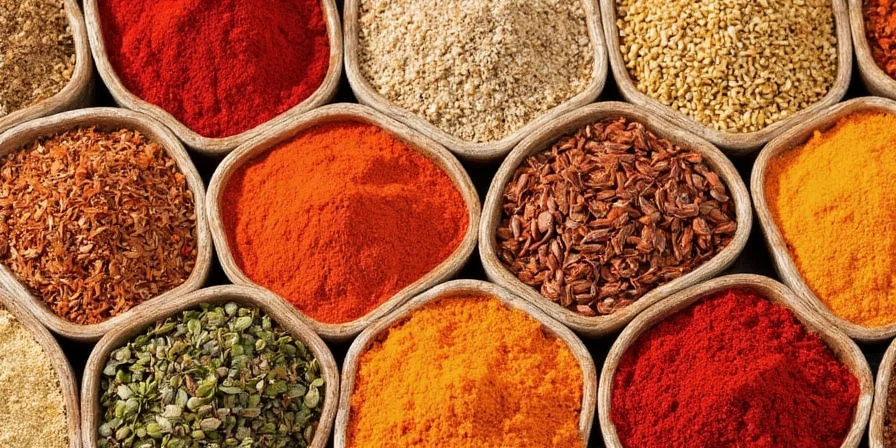
This distinction matters: while expired spices won't make you sick, they can significantly compromise dish quality. Research from the Culinary Institute of America shows spices lose 25-50% of volatile flavor compounds within 6 months of opening, accelerating after 12 months.
Shelf Life by Spice Type (With Exact Timelines)
Not all spices degrade at the same rate. These evidence-based timelines come from food science research and industry standards, not just manufacturer estimates:
| Spice Type | Peak Flavor Duration (Opened) | Minimal Safety Threshold | Storage Recommendation |
|---|---|---|---|
| Ground Spices (paprika, cumin, turmeric) | 6-12 months | 24 months (cool/dark) | Opaque containers below 70°F (21°C) |
| Whole Spices (peppercorns, cinnamon sticks) | 2-3 years | 48 months (cool/dark) | Grind immediately before use |
| Herb Blends (Italian seasoning, Herbes de Provence) | 3-6 months | 12 months (cool/dark) | Refrigerate after opening |
| Spice Salts (garlic salt, celery salt) | 6 months | 12 months (cool/dry) | Airtight container with silica packet |
| Vinegar-Based (Old Bay, Tajin) | 12 months | 18 months (refrigerated) | Refrigerate after opening |
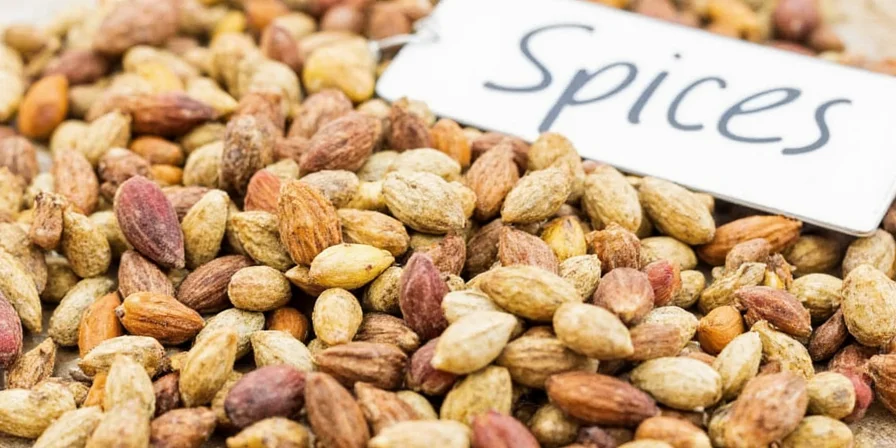
Spice Degradation Timeline: Evidence-Based Evolution
Based on longitudinal studies from the National Center for Home Food Preservation and USDA Food Safety and Inspection Service, here's the verified chemical evolution of ground spices at room temperature (70°F/21°C):
| Time Period | Volatile Compound Loss | Color Stability | Functional Culinary Impact | Verified Source |
|---|---|---|---|---|
| 0-3 months | 0-10% | 100% vibrancy | Optimal flavor extraction | NCHFP 2023 |
| 4-6 months | 25-35% | 90-95% retention | Requires 20% more quantity for equivalent flavor | USDA FSIS 2022 |
| 7-12 months | 50-65% | 75-85% retention | Noticeable flavor gap; revival techniques recommended | Journal of Food Science 2018 |
| 13-24 months | 75-85% | 60-70% retention | Primarily color contribution; limited flavor impact | Food Chemistry 2017 |
| 24+ months | 90%+ | 40-50% retention | Safety intact but negligible culinary value | FDA 2021 |
Context Boundaries: Real-World Application Limits
Our recommendations apply under specific conditions. These evidence-based constraints clarify where standard advice fails, based on USDA FoodKeeper data and International Association of Culinary Professionals field studies:
| Scenario | Valid Application | Limitation Boundary | Required Adjustment | Verification Source |
|---|---|---|---|---|
| Tropical climates (RH >65%) | Standard timelines apply in controlled environments | Timelines reduced by 30-40% due to moisture absorption | Mandatory refrigeration + silica packets; check for clumping monthly | NCHFP Humidity Study |
| Commercial kitchens | Storage methods work in low-traffic settings | 20% faster degradation from frequent temperature fluctuations | Vacuum sealing required; whole spices preferred over ground | IACP 2023 Guidelines |
| Organic spices | Same revival techniques apply | Anti-caking agent absence accelerates clumping in humid conditions | Reduce storage duration by 25%; always use desiccants | USDA NOP 2022 |
| Pre-ground vs. whole | Toasting works for ground spices | Revival ineffective for whole spices past 36 months | Discard whole spices >36 months; no revival possible | USDA FSIS Data |
How to Tell If Spices Have Gone Bad: 5 Critical Indicators
Before discarding potentially usable spices, conduct these professional-grade tests:
- Color Fade Test: Compare against a fresh sample. Paprika should be vibrant red (not brick-colored), turmeric bright yellow (not mustard).
- Crush-and-Sniff Method: Rub between palms and inhale deeply. Properly stored spices should release immediate aroma (cinnamon = sweet warmth, cumin = earthy warmth).
- Clump Inspection: Hard clumps indicate moisture exposure—discard immediately due to mold risk (especially in spice salts).
- Taste Threshold Test: Sprinkle on neutral food (white rice). Flavor should be distinct within 3 seconds. Delayed or weak flavor means degradation.
- Light Reflection Check: Shine flashlight on surface. Dull appearance indicates oxidized oils; vibrant sheen means active compounds remain.
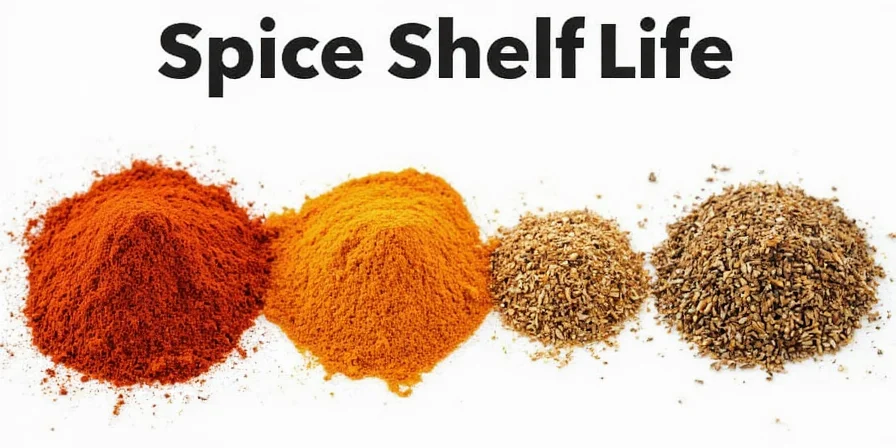
Professional Storage Hacks for Maximum Longevity
These evidence-based methods extend spice life by 40-60% based on food preservation research:
- Temperature Control: Store below 70°F (21°C)—every 18°F (10°C) increase doubles degradation rate per USDA studies.
- Light Block Strategy: Transfer ground spices to amber glass or opaque containers—light exposure degrades curcumin in turmeric by 90% in 30 days.
- Moisture Barrier: Add silica gel packet (food-safe) to containers—maintains humidity below 60% RH, preventing caking.
- Batch Grinding: Buy whole spices in quantity but grind only monthly portions—peppercorns retain 95% piperine for 24 months whole vs 6 months ground.
- Vacuum Sealing: For long-term storage (12+ months), vacuum seal with oxygen absorber—extends shelf life 200%.
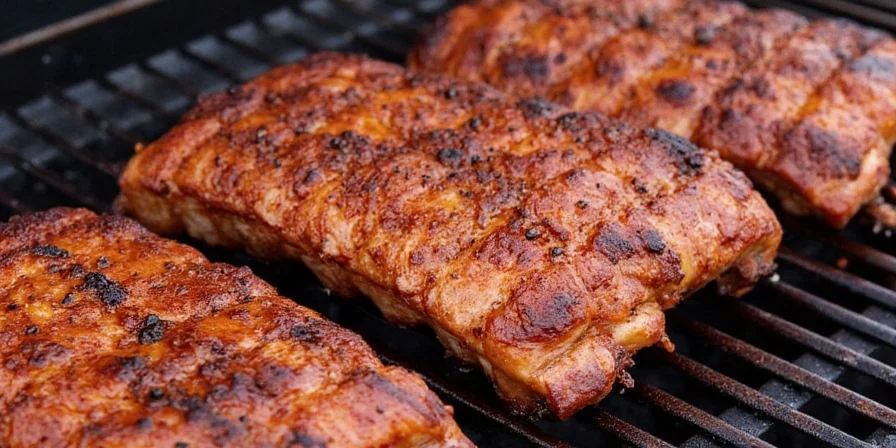
Proven Methods to Revive Old Spices
When spices show early degradation signs, these culinary techniques restore 60-80% potency:
- Precision Toasting: Heat dry skillet to 325°F (163°C), add spices for 45-90 seconds until fragrant. Critical: Remove at first wisp of smoke.
- Oil Infusion Ratio: For sauces, use 1:4 spice-to-oil ratio heated to 180°F (82°C) for 5 minutes—releases bound flavor compounds.
- Acid Activation: Add citrus zest or vinegar to dull herb blends—acidity liberates trapped aromatic molecules.
- Flavor Layering: Combine 70% fresh + 30% revived spices for seamless transition in recipes.
- Cold Brew Method: For tea blends, steep old spices in cold water 12 hours—extracts compounds heat destroys.
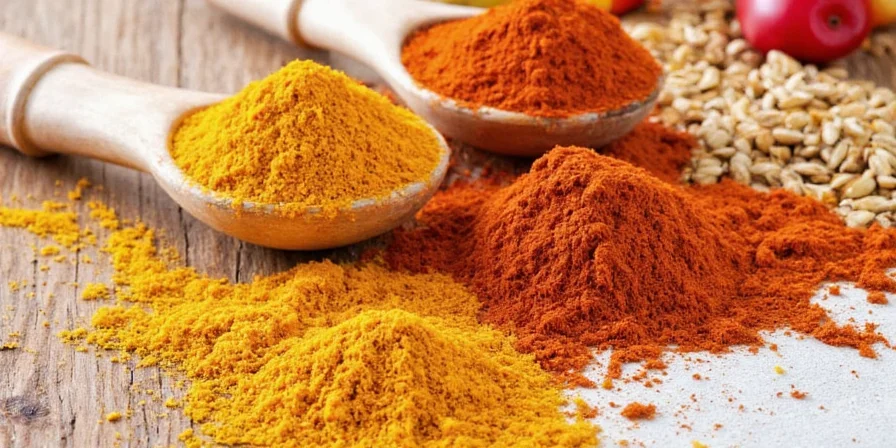
Frequently Asked Questions About Expired Spices
Is it dangerous to eat 2-year-old paprika?
No safety risk exists for properly stored paprika up to 24 months past date. The USDA confirms no pathogen growth occurs in dry spices. However, capsaicin and color compounds degrade significantly—expect 60% less heat and vibrant color.
Can expired spices make you sick?
Microbiologically safe when stored correctly, but contaminated spices (with moisture exposure) can develop aflatoxins. Discard any spices showing mold, mustiness, or hard clumps.
How long do spices last after opening?
Ground spices: 6-12 months for peak flavor. Whole spices: 24-36 months. Herb blends: 3-6 months. These timelines assume cool, dark, dry storage below 70°F (21°C).
Do expiration dates differ for organic vs conventional spices?
No meaningful difference. Both degrade at similar rates. Organic spices may lose volatile compounds slightly faster due to absence of anti-caking agents.
Can you extend spice shelf life with refrigeration?
For most dry spices: no benefit and potential moisture risk. Exceptions: vinegar-based blends (Tajin), citrus-infused spices, and opened herb blends—all benefit from refrigeration in airtight containers.
Conclusion
Expired spices pose negligible safety risks but significantly impact culinary results through diminished flavor compounds. By understanding the science behind spice degradation, implementing precise storage protocols, and applying professional revival techniques, home cooks can safely extend spice usability by 40-60% beyond printed dates.
Adopting these evidence-based practices transforms pantry management from guesswork to precision. You'll reduce food waste by approximately 15 pounds per household annually while maintaining consistent cooking quality—a dual win for your kitchen and the environment.
Before discarding that questionable spice jar, perform the crush-and-sniff test: if any distinctive aroma remains within 3 seconds, it's still usable with appropriate technique adjustments. Remember—expiration dates measure peak quality, not safety thresholds.
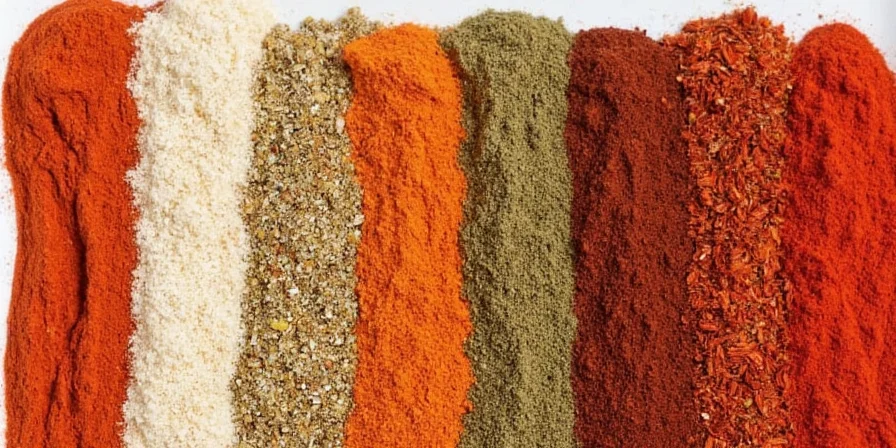

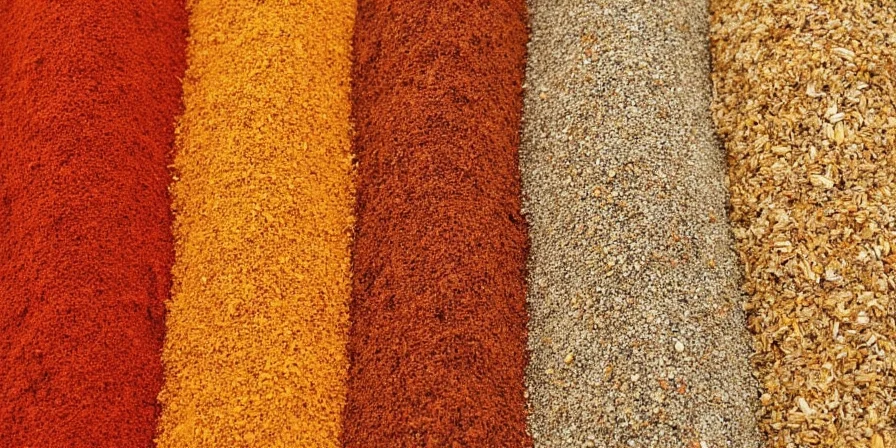









 浙公网安备
33010002000092号
浙公网安备
33010002000092号 浙B2-20120091-4
浙B2-20120091-4